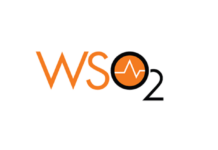New Delhi, October 31, 2016: A digital wave is sweeping across the $17 billion Indian pharmaceutical industry and companies are dumping old ways of marketing for newer technology, a survey of 20 top drug makers in the country has found. This new technology ranges from scientific detailing to doctors to using newer algorithms for better insights into issues like patient compliance. The trend matches a similar switch in China over the last few years.
The pharma industry’s marketing spends through digital platforms is estimated to shoot up nearly 50% in the next two years to touch Rs 220 crore, Bengaluru-based market research firm Indegene’s study shows.
Mobile apps and social media are set to play a bigger role in this growth, the study that is part of a larger report on global digital marketing trends found.
Indegene executive vice president Gaurav Kapoor says this will help India catch up with tech-savvy emerging markets peers like China, where nearly half the companies are expected to allocate more than a fifth of their marketing budget to digital marketing by 2018.
Pharma companies in India have already begun switching to new technology, as new launches show. Sun Pharma launched a mobile app called RespiTrack earlier this year for patient awareness on asthma and to ensure their adherence to treatment regimen.
The company reportedly plans to make similar apps for other ailments as well. GlaxoSmithKline’s local unit believes companies will have to hone their digital skills because a large portion of their customers will operate in that space. At least 20%-30% of GSK’s own customers are already in the digital world, said the company’s managing director for India, Annaswamy Vaidheesh.
GSK has not only leveraged webinars, video chats, information portals and platforms like ‘Viva’ for doctors, it has also equipped its field force with devices like iPads, Vaidheesh said. This would help the company disseminate real-time information on developments in therapy areas as opposed to waiting six months, he added.
Others like Abbott Healthcare see India as a ground for introducing tech innovations that can be replicated worldwide. It introduced several tools like Knowledge Genie, a heart and liver app and another one for vertigo exercises. Some of these build on augmented and virtual reality to engage with both doctors and patients.
“From an earlier product-specific detailing, the focus has now moved to scientific detailing.
This digitisation is also helping companies to gear up for the introduction of the proposed uniform code of pharmaceutical marketing practices,” an Abbott spokesperson told ET. While technology is sharpening patient interface, the Indegene survey adds that pharma companies currently face a big hurdle in implementing multi-channel marketing campaigns here — they aren’t able to adequately measure how much return on investment they get using these new channels. –ETHealthworld




















